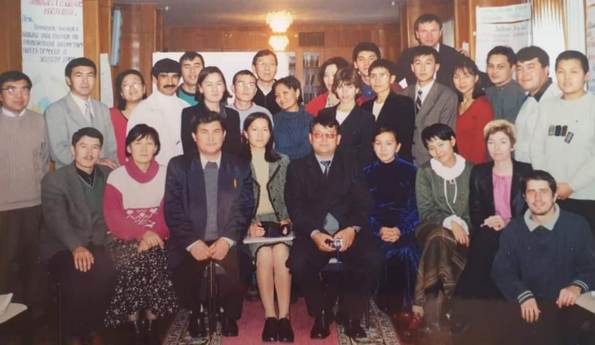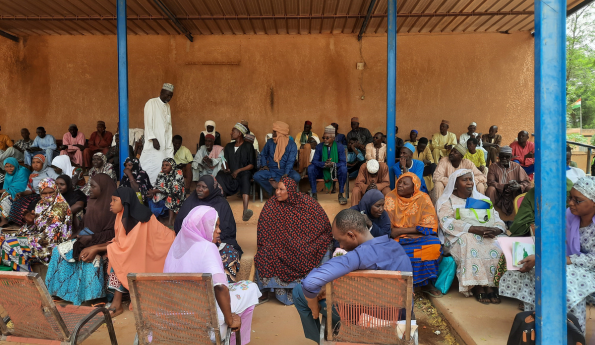By Kulsoom Rizvi
The dramatic collapse of the former Soviet Union in 1991 left several newly independent states in a turbulent situation, casting a shadow of desperate need for humanitarian assistance. Half way around the world, US nonprofit organizations were eager to help but faced daunting logistical challenges in getting precious commodities such as clothing and medical supplies to those in need.
Enter Counterpart
With financial support from the United States Department of State, Counterpart began operating the Small/Medium Transport Program, which organized the logistics and delivery of urgently-needed humanitarian aid to the former Soviet countries. Since 1998, Counterpart has shipped and delivered nearly 2,300 cargo containers of critically needed humanitarian commodities – valued at over $238 million dollars – to the vulnerable communities since the program’s inception. SMTP currently ships to Armenia, Georgia, Kyrgyzstan, Moldova, Tajikistan and Ukraine.
“What we’re doing is a good thing, it is something that is needed and will change the lives of thousands, maybe tens of thousands of people, every time we ship a container. Despite discouragement and any hindrances, we have to keep going,” John Kachelman, Minister of Ukraine Mission at Great Oaks Church of Christ said.
The overwhelming success of the program was highlighted at Counterpart’s annual SMTP Annual Domestic Conference held September 13 in Arlington, Virginia.
“For more than 15 years, SMTP has been an essential part of the Department of State’s Humanitarian Programs. Counterpart International has managed this program for the Department of State in an excellent manner,” Jerry Oberndorfer, Director of Humanitarian Programs at the U.S. Department of State said. “By working hand in hand with the donor organizations and the Office of the Coordinator of U. S. Assistance, a model program of private/public partnership has been forged.”
President and CEO of Counterpart, Joan Parker, echoed these remarks, noting that the network of relationships across the non-profit and business communities was pivotal in building the SMTP and is key to the program’s sustained results and impact.
“Bringing together partners with the same vision and a larger focus on humanitarian assistance to create communities that are healthy and resilient and thriving all around the world has allowed relationships to develop that are very strong,” she said.
Strengthening and expanding partnerships was the general theme throughout the conference, where partners and donors shared and exchanged ideas about ways to continue advancing the goals of SMTP, especially in improving the quality of life of aid recipients.
Such conferences have assisted in capacity building of U.S. partners in humanitarian assistance programming and provide a forum for interaction and dialogue with government representatives and Counterpart.
“The conference served to celebrate more than a decade and a half of joint growth, collaboration, and accomplishments in improving the quality of life of millions,” Rang Hee Kim, Director of Humanitarian Assistance at Counterpart said. “To continue building on the sixteen years of extraordinary results, conference participants engaged in vigorous discussions on how to sustain the successful network of SMTP public-private partnerships.”
Counterpart is known for facilitating relationships and building capacity in ways that improve the lives of individuals in need around the world through a variety of programs. With its SMTP, Counterpart seized an opportunity to assist in humanitarian aid where the leverage of shipping costs against the commodity value is 22 to 1.
© Kulsoom Rizvi/Counterpart International
“All of us in this room, all of you partners in the SMT Program have a lot to be proud of. I know the efforts to help relieve suffering; to lift up people in the region of the former Soviet Union will continue through many private needs and hopefully continue through collaboration with our government and other governments as well,” Daniel Rosenblum, Coordinator of U.S. Assistance to Europe and Eurasia at the U.S. Department of State said. “It’s been an inspiring experience for me to see the dedication and the commitment to the work you all are doing.”




